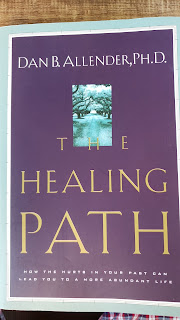Implicit Bias: A Christian perspective
Our brains are continually
pattern-recognizing, observing stereotypes, and making generalizations. These ordinary,
benign brain functions can also cause bias, which is widely referred to as
implicit bias. Implicit Bias (IB) differs from explicit bias as the former is an
unconscious attitude, preference, thought or feeling that may result in an
action. For example, the tragic incident involving a 25-year-old black man named
Ahmaud Aubery jogging in a residential neighborhood in Brunswick in Glen
county, GA, was assumed to be a burglary suspect on the run was most likely resulted
due to IB. Implicit bias is prejudice[1]; as such, it violates the sixth
commandment and contradicts Jesus’ command to love thy neighbor (Lk.10:25-28). How
can we understand and respond to IB biblically?
IB
is an alien thought as the one injected by the Enemy into the minds of our
first parents, who have only experienced the shalom[2]
in the very presence of God in Eden. Strangely, Adam and Eve subconsciously
felt they were being deprived of something good in God’s prohibition from the
tree amid the Garden. Thus, God becomes the first-ever victim of IB, even as
unbelief infects humanity in the Fall. Instead of believing in God, Alief
becomes humans' default state of mind (Rom.1:19-20). Alief in psychology and
philosophy is an automatic and habitual attitude that stands in tension with
explicit beliefs, responsible for several belief-behavior discordances,
including IB, phobias, fictional emotions, and bad habits[3]. Therefore, one can argue
IB is at the root of human rebellion.
IB
is complicated as the agent of IB remains unwilling and unable to report it. Are
agents of IB genuinely unaware of their biases? Some scholars assert, based on
evidence, that agents possess partial awareness[4]. In the Old Testament, contradictory
beliefs or cognitive dissonance[1]
are prevalent among wayward Judahites (Jer.17:9-10). Our daily Christian walk
marked by the often-inexplicable struggle between faith and unbelief (here akin
to alief) further affirms this behavioral-belief contradiction.
Some IB measures,
such as the IAT – Implicit Association Test, make people aware and curtail its
effects. These implicit measures are helpful in self-identifying IBs to predict
group behavior on average, but they cannot predict individual behavior.
Does IB create a
conflict between what we know and what we value? Social categorization is a fundamental
human brain function. Our intentional self-censorship based on ethical grounds
makes it impossible for agents to be rational and equitable[5]. Apostle Paul in Titus
1:12 seemingly stereotypes – ‘Cretans are always liars…’, while mentioning it
is not him who is making such a claim, but one of their prophets. Also, Paul says
the criticism strengthens their faith (v.13) not to cast them as intractable.
Change
based-interventions such as intergroup contact and counter-stereotype exposure
are introduced to overcome IB. Christianity offers the most diverse community-building
faith system there in the world with a call to make disciples of all nations
(Matt.28:19-20). Jesus Christ came to the earth to reconcile man to God and heal
the fractured humanity.
In the story of
the tower of Babel, and subsequently, in the call of Abraham (Gen.11-12), we
see God’s judgment, mercy, and redemption, through God’s promise to bless all nations.
Despite this revelation, the Hebrew nation claims a monopoly on God’s blessing
and builds a wall of separation to keep the Gentiles outside the temple. Addressing
this issue, Tim Keller says human sin turns the gift of God into racial
prejudice. Still, God radically reverses this racial exclusivity by breaking
down the wall of separation through Christ (Eph.2:11-22). The book of Acts
narrates the emergence of an incredibly diverse community of believers called
‘Christians’ (Acts 11:26) through the power of the Holy Spirit based on the miracle
of Christ’s resurrection.
While on earth,
Jesus told many parables to illustrate God’s kingdom and its nature. The
parable of the Good Samaritan is a classic counter-stereotype exposure that shocked
the Jewish lawyer who asked Jesus, ‘who is my neighbor?’
The Bible is not
silent on addressing sin and its effects. It commands us to repent of our sins while
holding us morally responsible, especially for our attitudes and actions
towards our neighbors created in God’s image endowed with dignity and the
beauty of diversity.
Christian worship
and liturgy provide healing and change for our IBs toward our neighbors; they restore
our relationship with God and others. The celebration of the Lord’s supper with
bread and wine symbolizing the body and blood of Christ not only commemorates
the sacrificial death of Christ for our redemption but also unites us to Christ
and one another in the body of Christ, with all its diversity through Christ’s
spiritual presence. It removes alief and restores belief.
[1] John Frame, Doctrine of
Christian Life (Phillipsburg, NJ, P&R Publishing, 2008), 663. Prejudice
means judging or evaluating someone before such judgement is appropriate.
[2] Wholeness, wellness
[3] Tamar Szabό Gendtler, Alief and
Belief, (The Journal of Philosophy, 105(10), 2008), 634-663
[4] Ibid
[5] Tamar Szabό Gendtler, On the
epistemic costs of implicit bias, (Philosophical
Studies,
156, 2011) 33–63.

